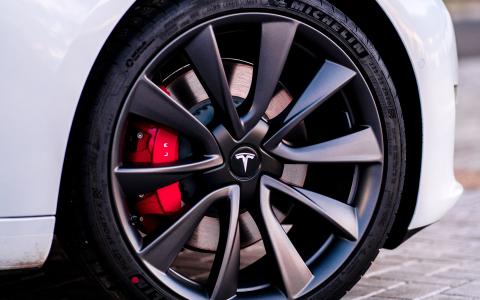
As Tesla’s stock tumbles, financial advisors and RIA professionals are closely monitoring the impact on portfolios and long-term investment strategies. Investors are expressing frustration, citing concerns over Elon Musk’s divided focus, as the company’s stock continues its downward trajectory.
Instead of concentrating on Tesla, Musk has been in Washington, DC, spearheading a government cost-cutting initiative. During his seven-week tenure overseeing agency closures and large-scale layoffs, Tesla’s stock has experienced a continuous decline. The cumulative damage is staggering: at Monday’s lows, Tesla shares dropped 15%, marking the steepest single-day loss since September 2020.
Year to date, Tesla stock has plunged more than 40%, and from its mid-December peak, it has shed 55% of its value. For wealth advisors, this presents both a challenge and an opportunity—assessing whether this downturn signals a deeper fundamental issue or a potential buying opportunity for long-term investors.
Investor concerns stem from Musk’s perceived lack of commitment to Tesla. Historically, he demonstrated hands-on leadership, famously sleeping on factory floors during crucial production phases. However, reports now suggest he’s spending nights at his DOGE government office near the White House. In a Fox Business interview, Musk acknowledged the difficulty of balancing his business ventures while managing his government responsibilities.
Beyond Tesla, Musk leads SpaceX, X, xAI, and Neuralink, while also being a prolific investor and a father of more than ten children. For financial professionals managing Tesla-heavy portfolios, the question remains: can Musk effectively juggle his responsibilities without negatively impacting Tesla’s future?
Adding to investor anxiety, Tesla faces declining vehicle sales in key markets like Europe and China. This fundamental weakness, coupled with Musk’s political distractions, has left investors with few reasons for optimism.
Investor Sentiment Reflects Growing Unease
Platforms like StockTwits provide a real-time look at investor sentiment. A recent (unscientific) poll on the platform asked whether Musk’s Washington focus is harming Tesla. Nearly 60% of respondents agreed, believing Tesla needs his full attention, while 25% dismissed the narrative as media-driven, and 15% attributed Tesla’s struggles to external market forces.
Garrett Nelson, senior equity analyst at CFRA Research, notes the growing dissatisfaction among Tesla investors. “Shareholders have legitimate concerns about Musk being spread too thin. It’s clear he is dedicating more time to DOGE than to Tesla,” Nelson said in an interview with BI.
Nelson, who expects Musk’s political commitments to extend through at least mid-2026, believes Tesla’s best move is to elevate a senior executive to take on additional leadership responsibilities. Such a move, he argues, could stabilize the company’s near- and mid-term objectives without requiring Musk to step away completely.
However, some high-profile investors believe that a leadership shift is necessary. Ross Gerber, a longtime Tesla shareholder, has voiced his concerns about Musk’s impact on Tesla’s brand. In a February interview, he suggested that the best solution is for Musk to step back from daily operations entirely.
“The company needs leadership that isn’t politically divisive and can restore Tesla’s brand,” Gerber stated. He believes hiring a new CEO would be the most effective way to achieve that goal.
A Catch-22 for Tesla Shareholders
Despite mounting concerns, both Nelson and Gerber recognize the paradox facing Tesla investors. While Musk’s leadership has been instrumental in Tesla’s rise, his continued involvement is now perceived as a liability.
“If you own Tesla stock, you’re caught in a dilemma,” Nelson explained. “Musk’s presence accounts for a significant portion of the company’s valuation, but at the same time, it’s beginning to weigh on Tesla’s brand and financial performance.”
Gerber estimates that Musk’s presence contributes between $150 and $200 per share to Tesla’s stock price. On February 26, when Tesla was trading above $300 per share, this implied that a significant portion of Tesla’s valuation remains tied to Musk’s leadership—whether for better or worse.
For Dan Ives, a research analyst at Wedbush and a noted Tesla bull, the debate is moot. He argues that Musk stepping down as CEO is highly unlikely. “Musk will remain Tesla’s CEO for at least the next five to seven years, if not longer,” Ives told BI.
Ives believes Tesla is currently undergoing its most innovative phase in five years, emphasizing that the company’s long-term value lies in its autonomous vehicle and robotics divisions rather than traditional EV sales.
“Over the past 15 years, both Musk and Tesla have faced skepticism, only to defy expectations. This situation is no different,” Ives said.
For RIAs and wealth advisors, the challenge is clear: assessing how much of Tesla’s valuation hinges on Musk’s leadership, determining whether the current stock decline is an overreaction, and positioning client portfolios accordingly. While some investors may see this as a buying opportunity, others may view it as a warning sign of deeper structural challenges ahead.



